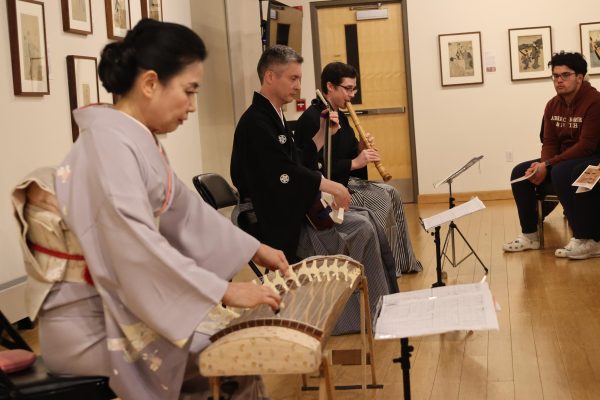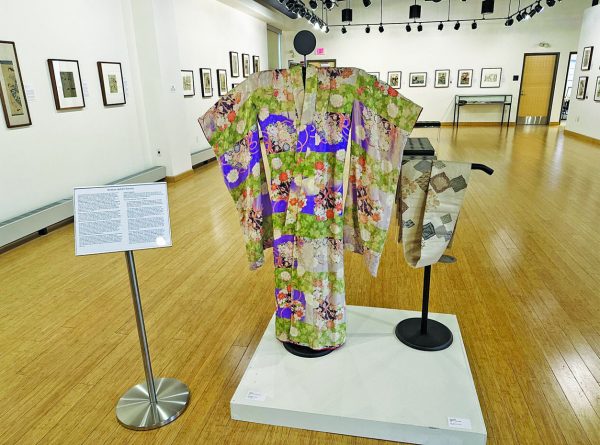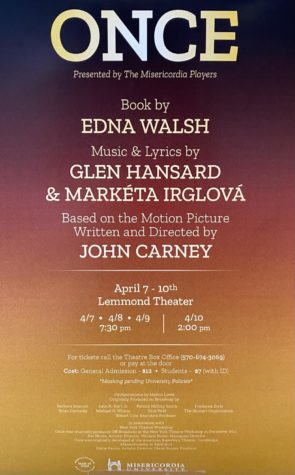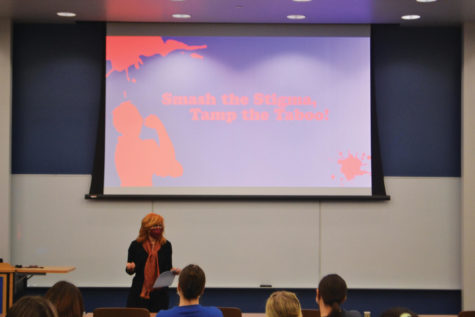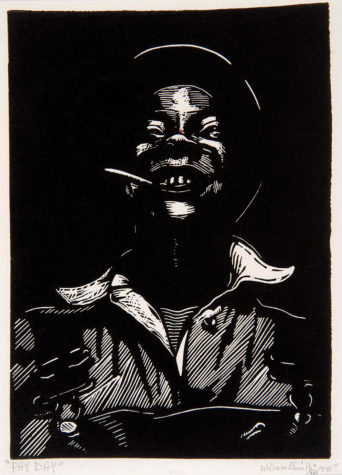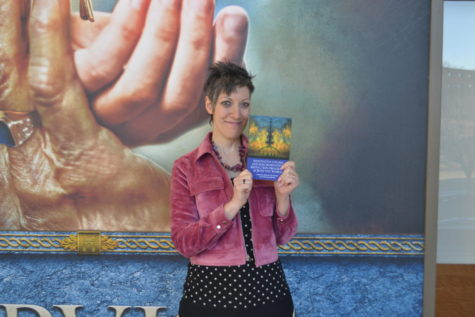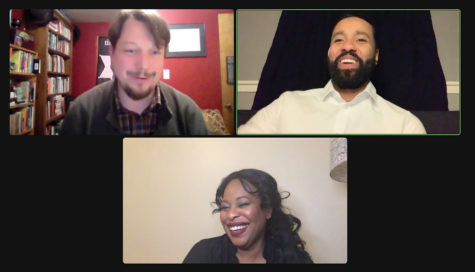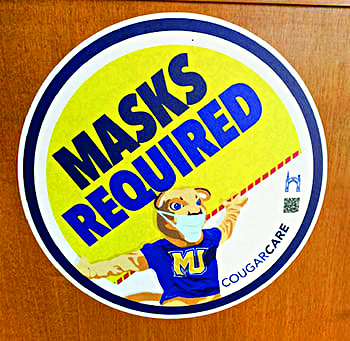WVIA Premieres Misericordia Documentary
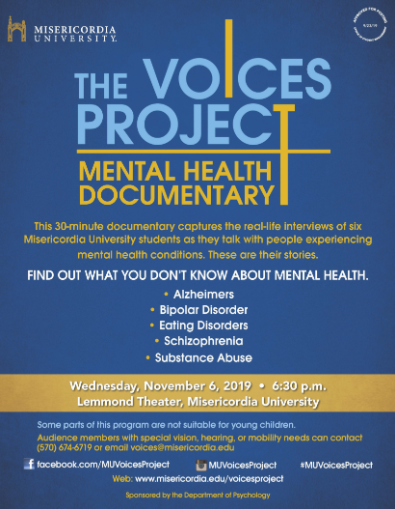
October 28, 2019
Local television station WVIA premiered the documentary of the student-faculty project The Voices Project: Mental Health on Oct. 10.
The ongoing project was organized by the university’s psychology department in recognition of Mental Health Awareness Week.
Dr. Alicia Nordstrom, professor and department chair of psychology and creator of The Voices Project series, has been working on this project since 2009.
“As a psychology professor, I was interested in having my students explore differences in society and people considered different as a way of thinking about stereotypes, prejudices, discriminations and why is it that we form negative attitudes towards people when we don’t even know them,” she said.
The main part of the project is having students conduct various interviews with people they don’t typically associate with, or they have a negative attitude about, and write a story about that person from that person’s point of view.
“I started this as a way not only to teach students about psychology, but to teach them about themselves and give them a skill of self-reflection and an opportunity to explore their attitudes, and change their attitudes as that they could be the best in their careers,” Nordstrom said.
Nordstrom said the most interesting thing about this project is the way students took it so seriously.
“Those students just exceeded my expectations for professionalism, for integrity, for the level of seriousness that they took that assignment, and I remember the care that they put into writing those stories and how the stories have lived on past that semester,” she said.
Nordstrom also said that, as a professor, she is excited to be able to watch students produce something that will live on forever.
“I called it ‘The Voices Project’ because the idea was to capture the voices and stories of people that are ignored, that are misunderstood, and that are stigmatized in society. The stories you don’t hear, and by capturing those stories and sharing them publicly, which is why I do the theater and the television parts,” she said.
Dr. Amanda Caleb, an associate professor of English and health humanities, assisted Nordstrom with the project.
Caleb has been involved with The Voices Project for roughly three years now and got involved when Nordstrom asked if her English 151 class could be involved since she teaches it on the literature of health and illness.
“There was a nice overlap anyway, and I have a little bit of background in script writing, as well, and so that’s how my class got involved,” Caleb explained.
She said when her class got involved, she gave them a survey to see which mental health conditions the students were familiar with, so they were able to pair the student with a person with a mental health condition they were not previously familiar with.
“By adding my class, it allowed Dr. Nordstrom to expand the population of students as well, so what we did for the research side of it is we had her 30-person class and my 20-person class in the actual voices project and my other class that was reading the same material was not involved and was the control to see how stigma does not change in that group,” she said.
Being a part of this project means a lot to Caleb because, to her, the most amazing part of the experience is knowing it has a lasting impact.
“Mental health is underdiscussed, or phrases about mental health are overused casually, and I think the rhetoric out there of how people describe political leaders or other individuals, it’s damaging, so to be involved in a project that counters that and really thinks about the value of story telling and narrative, as an English professor and as a medical humanities person, this is a dream come true,” she said.
Sarah Bender, senior statistics major, participated in The Voices Project. For multiple weeks during the fall semester of her freshman year, her University Writing Seminar class was focused on literature of health and illnesses, so she was involved with the project.
“This project documents the life of individuals dealing with mental illness,” Bender said. “It provides first-hand point of view of those who volunteered to share their personal story. As a student, I prepared questions for the interview, but I think the key was giving her an environment to feel comfortable in to just talk.”
The part Bender liked the most about being involved with this project was being able to gain a new point of view and valuable insight into an important topic not typically in the public eye.
“My favorite aspect of the project was being able to interview and listen to the life story of someone who experiences the world with bipolar disorder and depression and having the opportunity to listen to what she went through on a daily basis and how it impacted many aspects of her life helped me gain a new perspective on hidden challenges that people face,” Bender said.
The documentary can be watched on various platforms such as YouTube and PBS’s website.

